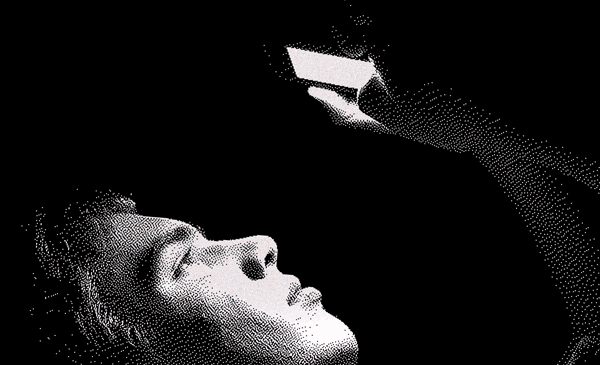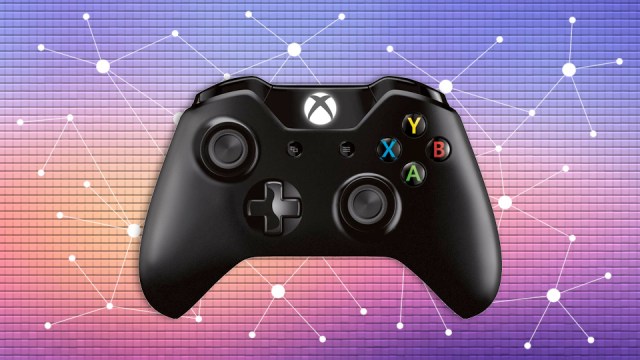Cutting social media use to 30 mins per day significantly reduces depression and loneliness

- Prior research has shown that social media usage can negatively impact our mental health, but until now, very few studies have shown this experimentally.
- A study from the University of Pennsylvania asked study participants to limit their social media usage so their resulting mental health could be measured.
- The results tell us how to regulate our social media usage to improve our well-being.
In 2008, American adults used their mobile phones for about a half hour a day. Nearly a decade later, that number jumped up to 3.3 hours per day. To be fair, a 2008 mobile phone wouldn’t hold a candle to the miniature computers we keep in our pockets, but still, the amount of time we devote to our smartphones begs the question: What is our obsession with smartphones doing to us?
Researchers have been hard at work trying to answer this question. There has been a considerable amount of prior research that’s shown that frequent Facebook and Instagram users self-report higher symptoms of depression, lower self-esteem, and greater body image issues. The trouble with these studies is that they are correlational—they don’t actually say whether social media and smartphone usage cause these undesirable feelings, just that the two are related.

Mobile phone usage over time.Kleiner Perkins
That’s where Melissa G. Hunt’s study comes in. Published in the Journal of Social and Clinical Psychology, Hunt’s study examined the impact of intentionally reducing social media usage in one of the first experimental studies of its kind.
In an interview with the University of Pennsylvania’s Penn Today, Hunt explained that they had “set out to do a much more comprehensive, rigorous study that was also more ecologically valid.” Their study would examine actual usage based on the iPhone’s built-in app monitoring and examine what happens to smartphone users when they reduce their social media intake, enabling them to make claims about what effect social media causes in its users
Hunt and her team recruited 143 undergraduate students to monitor their social media usage, specifically Facebook, Instagram, and Snapchat. The study participants were also given a survey designed to measure a number of psychological characteristics like depression, anxiety, the fear of missing out (i.e., worrying about all the fun your peers are having without you), social support, loneliness, self-esteem, and autonomy and self-acceptance.
Students took this survey before the experiment began to establish a baseline and then several times again over the ensuing three weeks. During this time, students were either instructed to continue using social media as they typically did or to limit their time on each platform to 10 minutes per day.
With just 30 minutes of Instagram, Facebook, and Snapchat a day, this is a significant reduction in the amount of time many people use social media. Some studies have proposed cutting social media out entirely, but considering how much our social and professional lives require these platforms, complete abstinence doesn’t seem feasible.

Photo by Samuel Zeller on Unsplash
After analyzing the data, Hunt concluded that “experimentally limiting social media usage on a mobile phone to 10 minutes per platform per day for a full three weeks had a significant impact on well-being.” However, social media use doesn’t affect all of the aspects of well-being that Hunt had looked at. Interpersonal support remained unchanged, as well as anxiety, self-esteem, and other measures.
But, said Hunt, “both loneliness and depressive symptoms declined in the experimental group,” which was especially true for those students who reported feeling more depressed. The researchers measured depression using the Beck Depression Inventory (BDI), and scoring above a 14 on the BDI marks the cut-off for clinical depression. Students who reduced their social media usage dropped from a mean of 23 to 14.5—meaning they still experienced a clinical level of depression but to a much less pronounced degree.
What’s more, the students themselves also noticed how their mood had improved over the course of the experiment. One student said, “Not comparing my life to the lives of others had a much stronger impact than I expected, and I felt a lot more positive about myself during those weeks.”
There were also some unexpected findings, too. Hunt and her team noticed that the students in both the control group and the experiment group experienced less fear of missing out and less anxiety. Hunt speculated that this was because the students were self-monitoring their social media usage, paying more attention to the time and impact these apps had on their lives.
“I was in the control group,” said one student, “and I was definitely more conscious that someone was monitoring my usage. I ended up using less and felt happier and like I could focus on school and not [be as] interested in what everyone is up to.”
There was also an interesting correlation between students’ well-being and their estimated usage. When taking baseline measurements prior to starting the experiment, Hunt had also asked students to guess at how much time they spent on social media.
“Estimated use,” she writes, “was negatively correlated with perceived social support, self-esteem, and overall well-being. […] More distressed individuals believed that they used social media more than less distressed individuals, despite the fact that there were no differences in objective use.” This also has a major impact on the structure of social media studies: If study subjects self-report their social media usage, then distressed individuals might artificially inflate their social media usage, causing a false correlation.
Flickr user susanjanegolding
So, what can smartphone addicts do with these findings? Limiting social media use to just 10 minutes per day per platform can have drastic effects on our perceived well-being. For some, 10 minutes of Facebook a day might sound like a death sentence, but it’s a small price to pay to feel happier and less lonely.
If cutting back to 10 minutes seems impossible, then at the very, least remaining conscious about our social media usage can positively affect our mood. Smartphones and social media are too ingrained in our society to just go away, but by being a bit more aware of how we use apps and what they are doing to our minds, we can at least mitigate their very worst effects.





